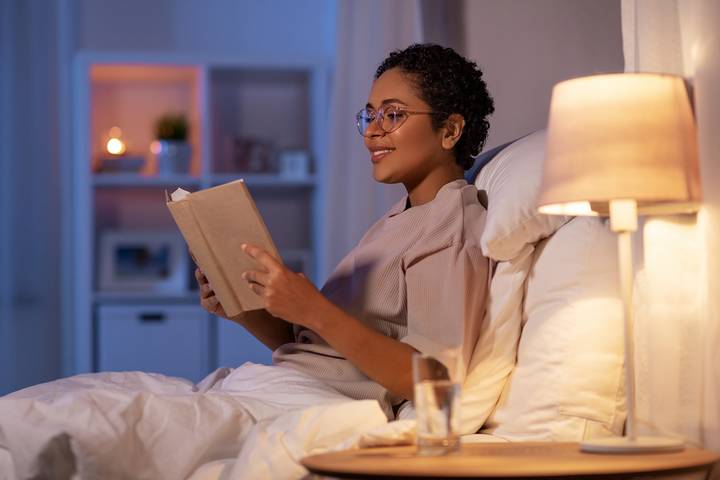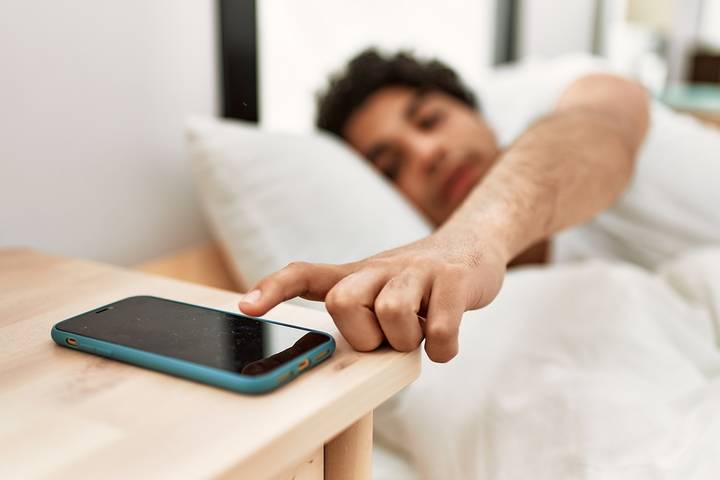After experiencing a long day, stress and anxiety often come alive at night. Whether you made a mistake at work or argued with a friend, different events can keep you awake during bedtime. You’re not alone. Many people find it hard to sleep when they feel stressed and anxious.
At night, your body winds down to heal from the activities earlier in the day. Not being able to sleep hinders your body’s recovery process, putting you in a constant state of discomfort. Amid stressful times, the body responds by tensing your muscles and keeping your senses alert. This prolonged insomnia will affect your quality of life. Your energy and mood may fluctuate after experiencing sleep deprivation nearly every night.
It’s best to address long-term stress and anxiety with the help of a counselling service near you. In addition, there are simple home remedies to improve your bedtime routine. Here are some solutions on how to sleep when stressed and anxious:
1. Develop a night routine before bed

Have you wondered how some people wake up and fall asleep around the same time every day? The secret rests in establishing a night routine before bed. Start by making your bedroom feel like a calm sanctuary. Wash your sheets and replace pillowcases frequently. Put an oil diffuser nearby to help you feel more at ease. If you want to repaint your room, use relaxing colours like blue, silver, pink, or light orange.
Also, try meditation and breathing exercises before going to bed. These gentle activities will help to soothe your mind and body. Other people report success with activities like reading a book or listening to music. Over time, these daily habits send a cue to your brain as it prepares to shut down for the day.
2. Turn off electronics before bed

After a long day at work, you might feel tempted to turn to your phone for comfort. Whether you’re browsing social media or reading one last email, using these electronics may interfere with your bedtime routine. The lights from your phone block natural melatonin, a chemical that puts your mind to sleep. In other words, looking at a screen before bedtime can keep you awake longer than you want.
It is a good idea to stop using electronic devices for at least 30 minutes before bed. If you’re tempted to reach for your phone, store it in a safe place away from your room. Turn off these devices before going to bed, as a notification alert will keep you pondering through the night. Replace your desire to interact with your phone with other hobbies instead.
3. Use de-stressing techniques before bed

In addition to your bedtime routine, some products are effective for helping you feel less stressed and anxious at night. Sound machines are pretty popular among those who have trouble sleeping. These devices produce ambient sounds like quiet raindrops or gentle ocean waves. The idea is to use white noise to create a consistent frequency in sound, which can relax us.
If you prefer a quiet space, you can also purchase weighted blankets or night lights. Some people prefer sipping chamomile tea because of its calming qualities. Other products to consider include audiobooks, meditation apps, and sleeping masks.
4. Organize your day for tomorrow

Life never stops while we sleep. As you lie in bed, it’s easy to ponder about your upcoming tasks and responsibilities. You might have errands to run, deadlines to meet, and uncertain situations to handle. We don’t know what might happen tomorrow, which can cause stress and anxiety that keep you overthinking at night.
Any pending work might preoccupy your mind, so it’s good to create a plan. Rather than stressing about what happens tomorrow, compile a power list of all your tasks before going to bed. Organize them into smaller and simpler lists to make the information less complex. You will appreciate having a prepared outline for tomorrow’s schedule, giving you less to worry about before bedtime.
5. Avoid stress in daily life

How you spend the day sets the tone for the type of sleep you’ll get. For instance, if you watch horror movies all day, you might have a fitful sleep ridden with nightmares. Many events can happen to keep you worried and anxious throughout your day. Although you can’t control what occurs during the day, you have the power to determine your reaction to them.
Observe daily circumstances that trigger anxiety and try to avoid them. On days that you have to deal with stress, practice reframing your mindset. Filter negative thoughts as they come and replace them with affirming ones. As you try to avoid stress during the daytime, the blissfulness will resonate in your sleep quality at night.
6. Maintain healthy living habits

Unhealthy habits may negatively impact how you sleep. For instance, consuming junk food and sugary drinks limits your body’s ability to manage anxiety, making it harder to fall asleep. Instead of fatty foods or processed beverages, introduce more fruits and vegetables to your diet.
Exercising regularly is also part of a healthy lifestyle. Working out stimulates hormones that allow you to feel positive emotions. If you prefer relaxing movements, you can embrace yoga instead. However, avoid working out before going to bed because movement causes your muscles to tense. Give your body plenty of time to rest and relax.
Finally, everyone experiences varying degrees of stress and anxiety in their lives. These negative emotions may seem more pronounced at nighttime, but they can also affect you during the day. If you are feeling overwhelmed, contact Kari Walton Counselling Services for professional assistance. A counsellor can provide guidance to manage your stress and anxiety effectively.

